Pokémon Scarlet and Violet
LQ: 9.45
Recommended Age: 4+
Skills Used: Flexibility, Planning, Mathematics, Reading, Writing
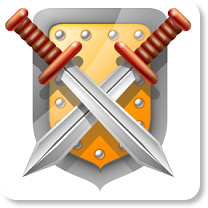 Genre: Role-Playing Games
Genre: Role-Playing Games
Featured LWK Games: Torchlight, Dragon Quest IX, Dungeon Hunter, Star Ocean, Lost Odyssey, Star Wars: The Old Republic, Final Fantasy III, IV & XIII
Popular M-Rated Games: Elder Scrolls V: Skyrim, Dark Souls, The Witcher: 2, Fallout 3, Fable 3, Diablo 3, Demons Souls
Most Common Thinking Skills Used: Focus, Planning, Organization
Today’s video Role Playing Games (or RPGs) are an evolution of dice-rolling, pen and paper games like Dungeons and Dragons, and range from classic fantasy RPGs like the Final Fantasy series, to mature, modern “Action RPGs” like Fallout 3 and Diablo 3..
RPGs tend to focus as much on character development and story as they do on combat. Most often, one plays an RPG as a single heroic character on an epic quest, striving to achieve victory by completing a series of tasks and missions, while winning a number of tactical battles with his enemies. The player is often asked to make difficult decisions on behalf of the character, including strategic choices about the player’s combat and defense abilities, as well as moral and plot-driven choices that can greatly effect the narrative of the quest. It is this variety of choice available to the player that allows him to feel as if he is really “playing the role” of the game’s hero.
Getting started and then maintaining attention and effort to tasks.
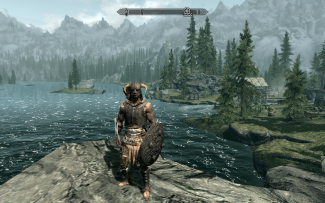 RPGs can be incredibly useful tools in teaching kids valuable lessons about Focus. Throughout the course of an RPG, the player often has to simultaneously keep his attention on a “big” goal–the greater quest he is on–while simultaneously focusing on a number of smaller and more immediate tasks–side missions, tasks, battles, etc. This is quite similar to the way a kid will have to keep in mind the big goal of a final class grade at school, while focusing on the immediate tasks of homework, projects, tests, and assignments.
RPGs can be incredibly useful tools in teaching kids valuable lessons about Focus. Throughout the course of an RPG, the player often has to simultaneously keep his attention on a “big” goal–the greater quest he is on–while simultaneously focusing on a number of smaller and more immediate tasks–side missions, tasks, battles, etc. This is quite similar to the way a kid will have to keep in mind the big goal of a final class grade at school, while focusing on the immediate tasks of homework, projects, tests, and assignments.
Developing a systematic approach for setting and achieving goals.
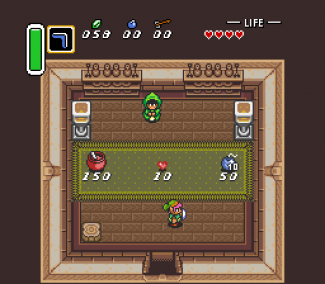 A common feature of RPGs is the town, where players get a respite from the action and can stock up on goods, rest their characters and replenish their health and magic. Players commonly have to visit these towns before big battles to acquire better equipment, improve their weaponry or simply purchase useful items like healing potions. Failing to prepare adequately for difficult segments of the game can make progression incredibly hard, so players who plan ahead will find that they are much better prepared for the challenges ahead.
A common feature of RPGs is the town, where players get a respite from the action and can stock up on goods, rest their characters and replenish their health and magic. Players commonly have to visit these towns before big battles to acquire better equipment, improve their weaponry or simply purchase useful items like healing potions. Failing to prepare adequately for difficult segments of the game can make progression incredibly hard, so players who plan ahead will find that they are much better prepared for the challenges ahead.
Another common aspect of RPGs is the “leveling” system. Characters generally start off rather weak, but gain “experience” points as they battle foes and progress in the game. When enough of these points are earned, characters “level up,” gaining increases in their health, or improving their defensive or offensive power. Many times players will have to “grind” through multiple battles before moving on to more challenging areas of the game, as their character is not yet strong enough to tackle the foes ahead. Taking the time to grind through multiple battles and improve character stats is a key component of progression, requiring players to take the steps needed to empower their character.
Arranging and coordinating materials and activities in order to complete a task.
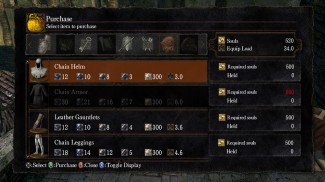 During the course of an RPG, players will acquire various items and equipment to help their character, and will need to manage this inventory to succeed. By putting their goods in order, players can upgrade armor, use more powerful weapons, and utilize different potions, spells, and abilities to boost their character’s skill. As RPGs progress, enemies become tougher to beat, so keeping characters up to date with the best equipment is essential for success.
During the course of an RPG, players will acquire various items and equipment to help their character, and will need to manage this inventory to succeed. By putting their goods in order, players can upgrade armor, use more powerful weapons, and utilize different potions, spells, and abilities to boost their character’s skill. As RPGs progress, enemies become tougher to beat, so keeping characters up to date with the best equipment is essential for success.
Sometimes an RPG will even allow equipment to be augmented, and require players to manage a team of character throughout the game. This team is commonly referred to as a “party.” Organizations skills become all the more important when tasked with managing an entire party, as players need to ensure the equipment and powers bestowed upon their characters compliment one another in order to create a dynamic team. This means having a healing character to aid injured allies, an offensive magic caster for exploiting elemental weaknesses in foes, and having an all-around warrior type with a high defensive stats, able to take the brunt of attacks and dish out a powerful offense.
Use this Play Together guide to learn how you can help your child turn time spent playing RPGs into a positive learning and relationship-building experience. To learn more about why playing games with your children is so important, check out our Science of Play page.
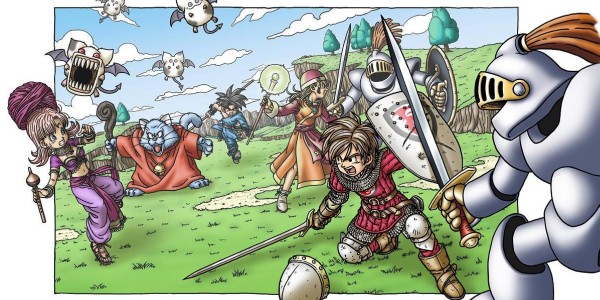
Take a minute to talk with your child about how the Focus, Planning and Organization thinking skills work, and why they are important for success in school and at home.
Most RPGs feature “quests,” which are missions that ask players to complete specific in-game tasks. The first quests in an RPG usually revolve around teaching players a game’s basic mechanics, familiarizing them with the controls and introducing them to the story and environment. To get started, go through a few of these introductory quests and missions with your child, making sure each of you have a good grasp on the game and how to play.
After that, an RPG will usually lead players to their first “boss fight,” which is a battle against a foe much stronger than those encountered regularly throughout the game.Many times a boss awaits players within a “dungeon,” which is a level that usually has puzzles to solve, treasure to collect and tougher enemies to defeat. So, after you and your child finish up some introductory quests, try to make it to the first boss battle and win.
After you’ve completed the first dungeon, take a minute to pause the game and talk with your child about how the game was exercising your thinking skills.
Our Make it Work activities are designed to transform your child’s gameplay to real-world improvements in thinking and academic skills. If you’re just getting started with LearningWorks for Kids, we suggest you try them all to find which are the best for you and your child.
Read over the pages for Flexibility and Focus. Then take some time to introduce these thinking skills to your child.
Explain that:
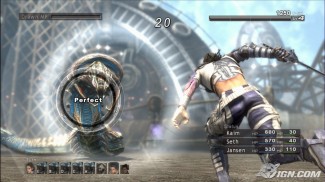 Break it up! Engage your child in “hands-on” household tasks that allow you to demonstrate how to divide a job into starting points and smaller steps. Preparing a meal would be ideal because it involves consulting a recipe, having the necessary ingredients and utensils within reach, and having time to set the table and put out condiments or side dishes. Repair or construction tasks would also work well. Again, clear a space, study instructions, gather materials and tools, determine where to start and how to proceed. And by all means, clean up when you’re done! Work towards encouraging your child to plan a menu or a project of his own and have him direct you as the assistant.
Break it up! Engage your child in “hands-on” household tasks that allow you to demonstrate how to divide a job into starting points and smaller steps. Preparing a meal would be ideal because it involves consulting a recipe, having the necessary ingredients and utensils within reach, and having time to set the table and put out condiments or side dishes. Repair or construction tasks would also work well. Again, clear a space, study instructions, gather materials and tools, determine where to start and how to proceed. And by all means, clean up when you’re done! Work towards encouraging your child to plan a menu or a project of his own and have him direct you as the assistant.
Take inventory. Sit down together and plan to shop for clothing for school or a seasonal change. Help your child to sort through his old clothes, deciding what she has outgrown or worn out and what is still useful. Determine together how many items remain in the wearable pile and use that information as a starting point for writing a list of what she believes she needs. Be sure to discuss with your child the importance of taking inventory and how it can be helpful in the planning process.
Organize by category. Encourage children to be creative in choosing ring tones to remind them of a contact group or thinking of things that can be organized by category. For example, color-coded notebooks, folders, and book covers for school classes (i.e., math is green, science is red) can help your child to stay organized in school. Encourage your child to find more interesting ways of organizing their belongings, so that they are engaged in the process. Ask them to elaborate about their organizational strategies.
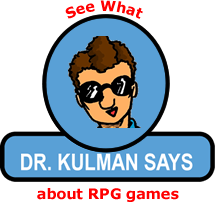
If your child likes role-playing games, they are likely to get highly absorbed in the story and characters of the game as much as they are in the game play itself. Just ask your child to tell you about his favorite role-playing game–more likely than not, you’ll get a long story as a response. In fact you might even want to use this as an opportunity to help him think about how to organize the story. Prior to having him tell you about the game, let him know that you know very little about the characters, the plot, and history of the game. Interrupt him if necessary to ensure that he tells you the story in an orderly and organized fashion.
Role-playing games often involve a great deal of fantasy. You might use the games as an opportunity to encourage a child to read fantasy books. There are literally hundreds of fantasy tales with themes ranging from dragons, to medieval times, to science fiction. Use your child’s choice of an RPG game to help direct them towards an appropriate type of fantasy book.
While most RPGs do not lend themselves to multiplayer games, if you’re interested in playing the games themselves, ask your child to serve as your guide in game play. Ask him to help you get started and then have him become your consultant, encouraging him to not simply tell you what to do, but to tell you how to learn from the game.
Many RPGs involve moral and ethical dilemmas. Once you understand the plot and characters the game, you can use this as an opportunity to engage in discussions about common RPG themes such as war, capital punishment, and friendship. Part of what engages players in RPGs are the themes of good vs. evil and the opportunities for heroism in one’s character, so expect a passionate interchange about these issues.
All membership plans come with full access to our entire suite of tools learning guides, and resources. Here are a few of the ones we think you’ll like the most: